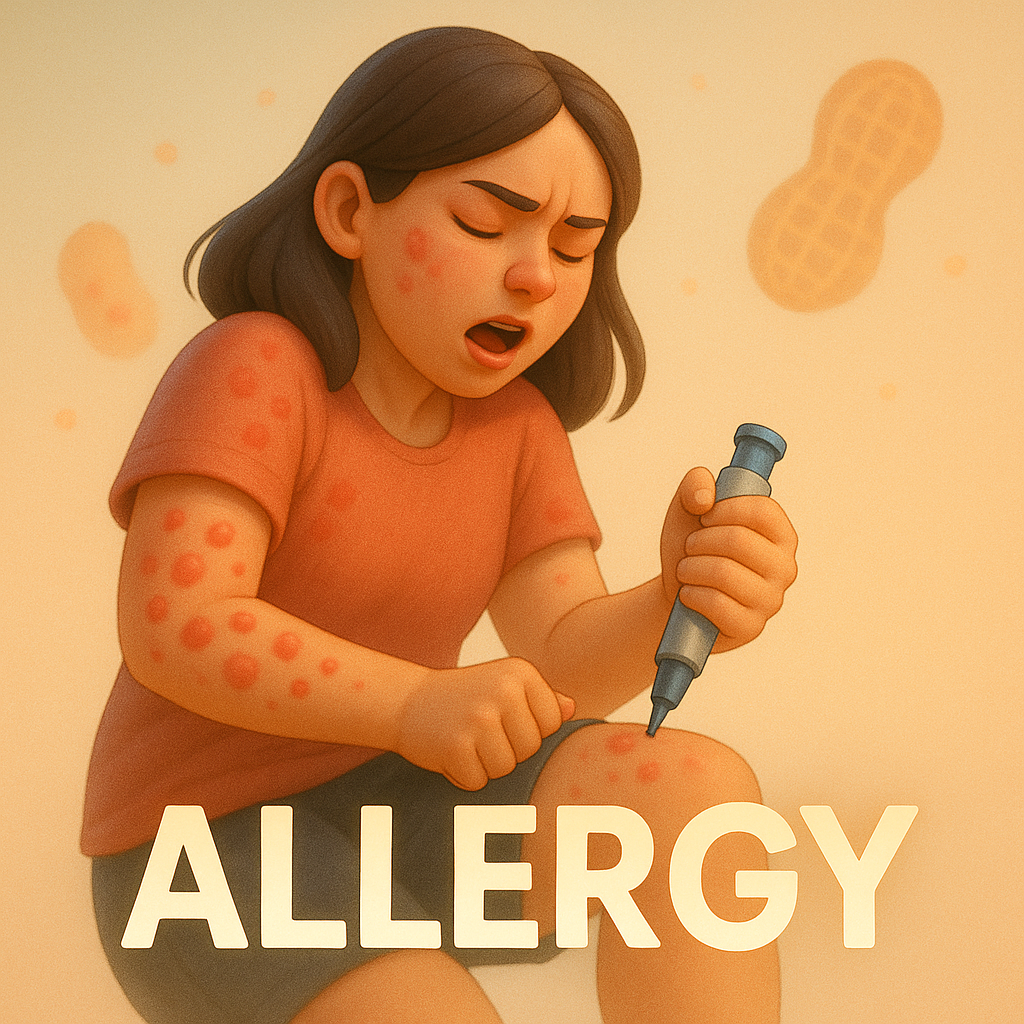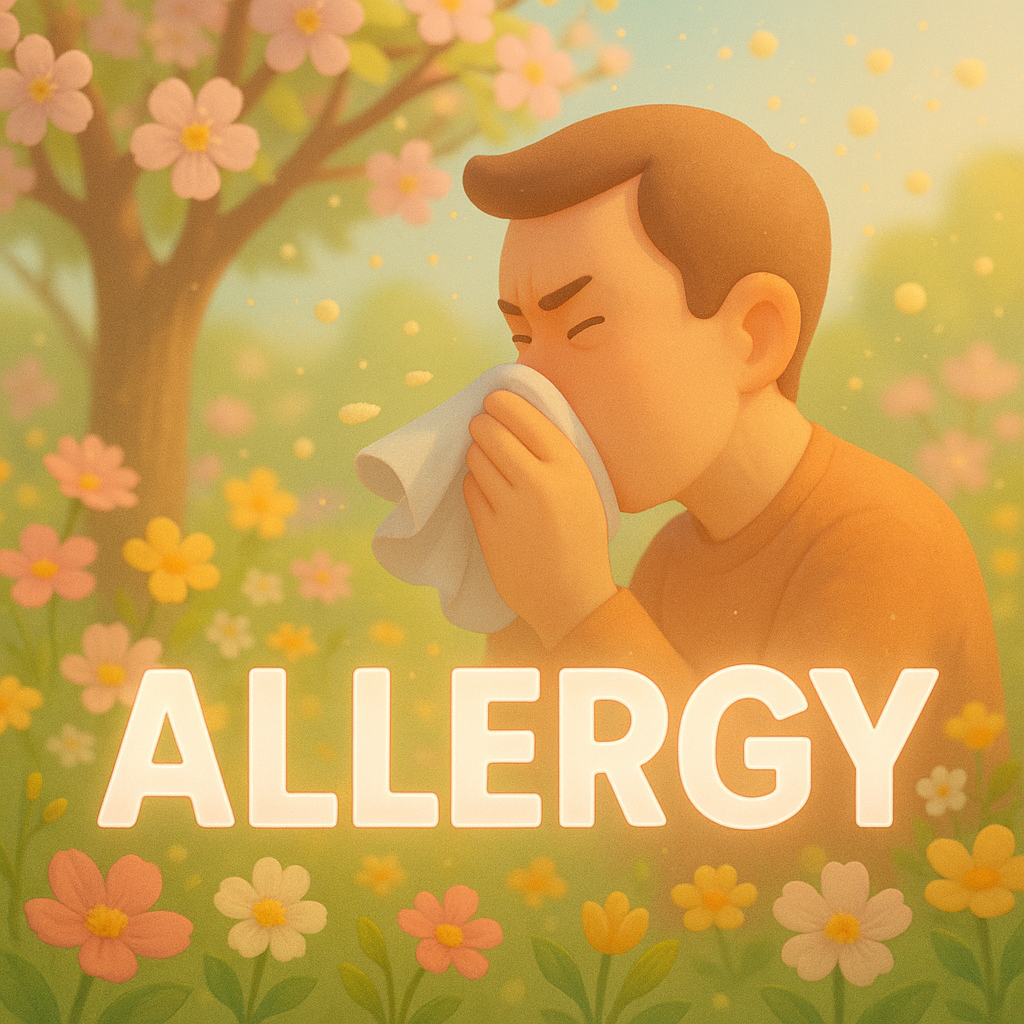Allergy
Definition
Allergy refers to a hypersensitive immune response to a normally harmless substance (an allergen), resulting in symptoms such as sneezing, itching, hives, or more severe reactions. Its plural form is allergies.
Parts of Speech
- Noun
Pronunciation
American English
- IPA: /æl.ərˈdʒi/
- Respelling: AL-er-jee
British English
- IPA: /ˈæl.ə.dʒi/
- Respelling: AL-uh-jee
Etymology
Late 19th century: from Greek allergos “altered reaction,” from allos “other” + ergon “work.”
Derivatives
- allergic (adjective)
- allergically (adverb)
- allergen (noun)
- allergist (noun)
- allergology (noun)
- allergenicity (noun)
Synonyms
- hypersensitivity
- sensitization
- reactivity
Antonyms
- tolerance
- immunity
Usage
"She discovered her allergy to shellfish after eating shrimp."
"Seasonal allergies often cause hay fever symptoms in spring."
Related Terms
- Allergen: A substance that triggers an allergic reaction.
- Anaphylaxis: A severe, potentially life-threatening allergic reaction.
- Histamine: A compound released during an allergic response.
- Immunology: The study of the immune system.
- Atopy: A genetic predisposition to develop allergic diseases.
Detailed Definitions
Noun
- An immune system reaction to a harmless substance – an exaggerated response by the immune system to pollen, dust, foods, or other allergens.
- Example: "His allergy to bee stings caused his arm to swell."
- A specific sensitivity to an allergen – the individual phenomenon of reacting upon exposure to a particular substance.
- Example: "Her peanut allergy requires her to carry an epinephrine injector."
- A medical condition characterized by recurring hypersensitivity – a chronic tendency to develop allergic symptoms.
- Example: "He suffers from seasonal allergies every spring."
allergy

His allergy to bee stings caused his arm to swell.

Her peanut allergy requires her to carry an epinephrine injector.

He suffers from seasonal allergies every spring.





